When it comes to transporting vehicles, a car trailer is an essential tool that simplifies the process. Whether you’re a car enthusiast who frequently attends shows, a contractor needing to haul equipment, or simply a person relocating, having the right car trailer is crucial. Choosing the right one can make a significant difference in both the safety of the vehicles being transported and the ease of loading and unloading. This comprehensive guide will provide you the necessary information to make an informed decision when selecting a car trailer.
Understanding the Types of Car Trailers
Open Trailers
Open car trailers are among the most popular options due to their versatility and lower cost. These trailers typically consist of a flatbed with no sides or roof, allowing for easy loading and unloading. They come in various sizes and can accommodate a wide range of vehicles, from motorcycles to cars and even larger trucks.
Open trailers usually weigh less than enclosed trailers, which makes them easier to tow. However, they expose the vehicle to the elements, which may not be ideal for long-distance travel or extreme weather conditions. Despite this, many choose open trailers for their affordability and simplicity, making them an attractive option for casual users.
Enclosed Trailers
Enclosed car trailers provide added protection for the vehicles being transported. These trailers are fully enclosed with walls and a roof, shielding the vehicles from rain, snow, dirt, and debris. They are particularly popular among car collectors and racers who want to protect their investments during transport.
Enclosed trailers come in various configurations, including those with living spaces or additional storage compartments. While they tend to be more expensive and heavier than open trailers, they offer significant advantages in terms of security and vehicle protection. Enclosed trailers often come equipped with additional features, such as ventilation systems and insulation, making them suitable for a range of conditions.
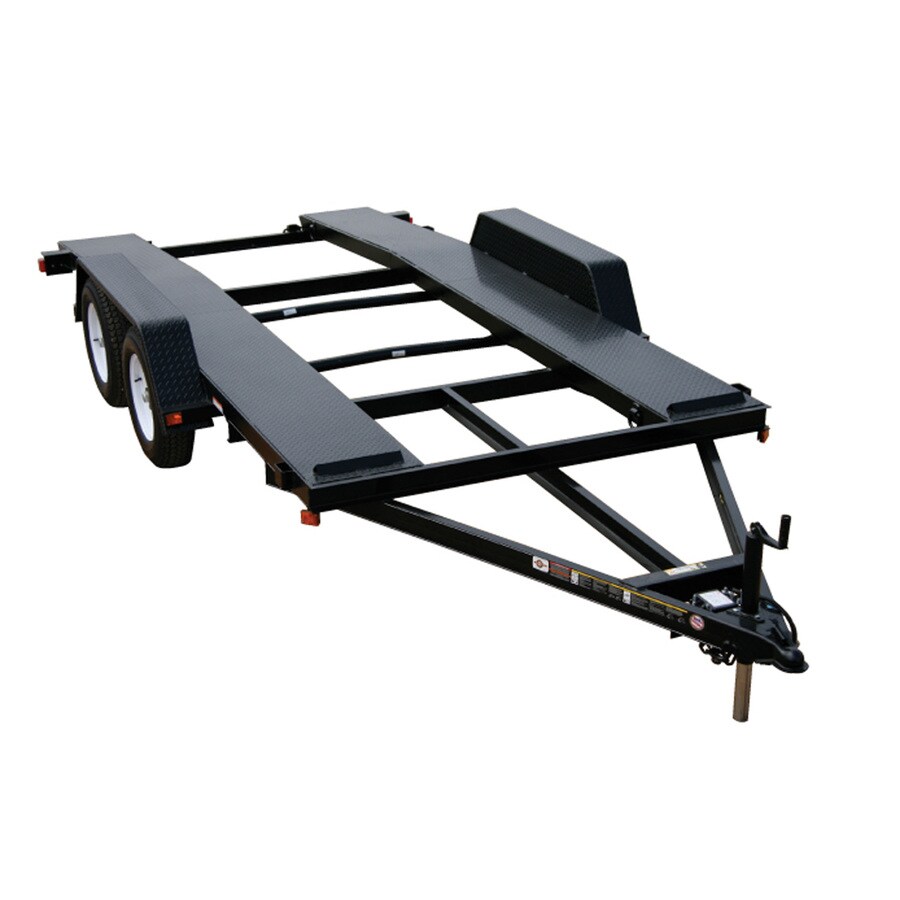
Key Features to Consider
Size and Weight Capacity
When choosing a car trailer, size and weight capacity are critical factors. The trailer must be able to accommodate the vehicle you plan to transport. Measure your vehicle’s length, width, and height accurately before selecting a trailer size. It’s advisable to choose a trailer that allows for some extra space. This extra space makes loading and maneuvering easier.
Weight capacity is another important consideration. Every trailer comes with a specific weight limit that should never be exceeded. Exceeding this limit can cause instability during transport and can lead to accidents. Most light-duty car trailers can carry between 2,000 and 10,000 pounds. Be sure to confirm the specifications and assess the total weight of the vehicle and any cargo being carried.
Towing Compatibility
Before purchasing a car trailer, ensure that your vehicle is compatible for towing. Check the towing capacity of your vehicle, which can usually be found in the owner’s manual. This capacity refers to the maximum weight your vehicle can safely tow.
Also, assess the towing equipment required. You may need a specific hitch class, such as a Class II or Class III hitch, depending on the trailer’s weight. Ensuring your vehicle can handle the trailer’s weight not only promotes safety but also ensures that your towing experience is smooth and hassle-free.
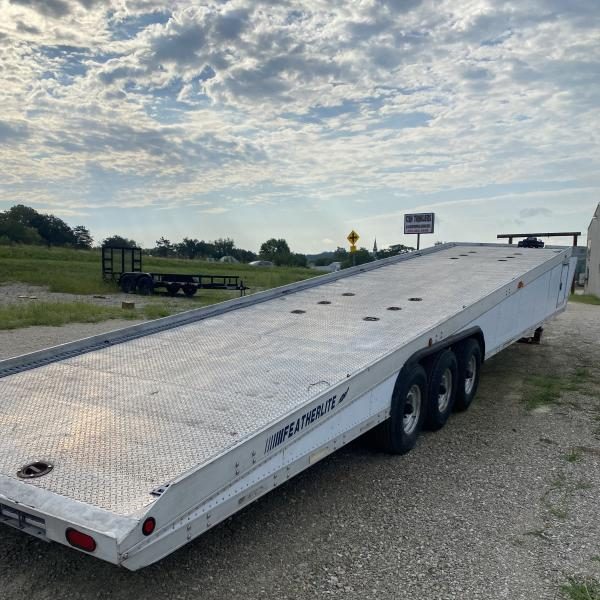
Safety Features and Regulations
Braking Systems
Safety is paramount when transporting vehicles. One of the essential safety features to consider is the braking system. Different trailers may come equipped with either electric or surge brakes. Electric brakes are activated by the tow vehicle’s brake system, providing additional stopping power when needed. Surge brakes are a self-activating braking system that engages when the trailer pushes forward during braking.
Understanding the differences between these systems will help you choose a trailer that meets your safety needs. Many jurisdictions also require trailers over a certain weight to have effective braking systems. Always check local regulations and ensure compliance, as failing to do so can lead to penalties.
Tie-Down Points and Security Features
Properly securing the vehicle is critical for safe transport. Look for trailers with multiple tie-down points, which allow you to fasten the vehicle securely in place. These points should be durable and strategically located for maximum stability during transport.
Additionally, consider any built-in security features that can protect your vehicle from theft or vandalism. Some enclosed trailers come equipped with locking mechanisms for added security. Investing in additional wheel locks or hitch locks can further enhance your vehicle’s safety during transport.
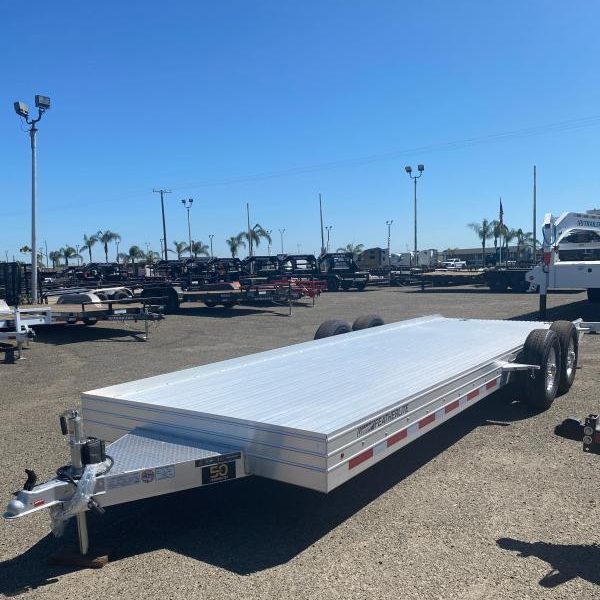
Material and Construction
Trailer Materials
The materials used in trailer construction play a significant role in their durability and performance. Most car trailers are constructed from either steel or aluminum. Steel trailers are heavy-duty and generally more affordable, making them suitable for heavy loads. However, they can be subject to rust and corrosion if not properly maintained.
On the other hand, aluminum trailers are lighter, rust-resistant, and require minimal maintenance. They may come at a higher price point, but their longevity and durability often make them worth the investment. Ultimately, the choice between steel and aluminum will depend on your budget, the type of vehicles you plan to transport, and how often you intend to use the trailer.
Frame and Axle Construction
When examining the construction quality of a car trailer, pay attention to the frame and axle. A sturdy frame is essential for providing the necessary support for the weight being towed. Look for trailers with a solid, welded frame instead of those that are bolted together, as welded frames offer greater strength and stability.
The axle configuration also impacts the trailer’s performance. A single axle may be suitable for lighter loads, but a dual-axle trailer offers better weight distribution and enhanced stability while towing. Dual-axle trailers can also carry heavier loads more safely, making them a popular choice for transporting larger vehicles.
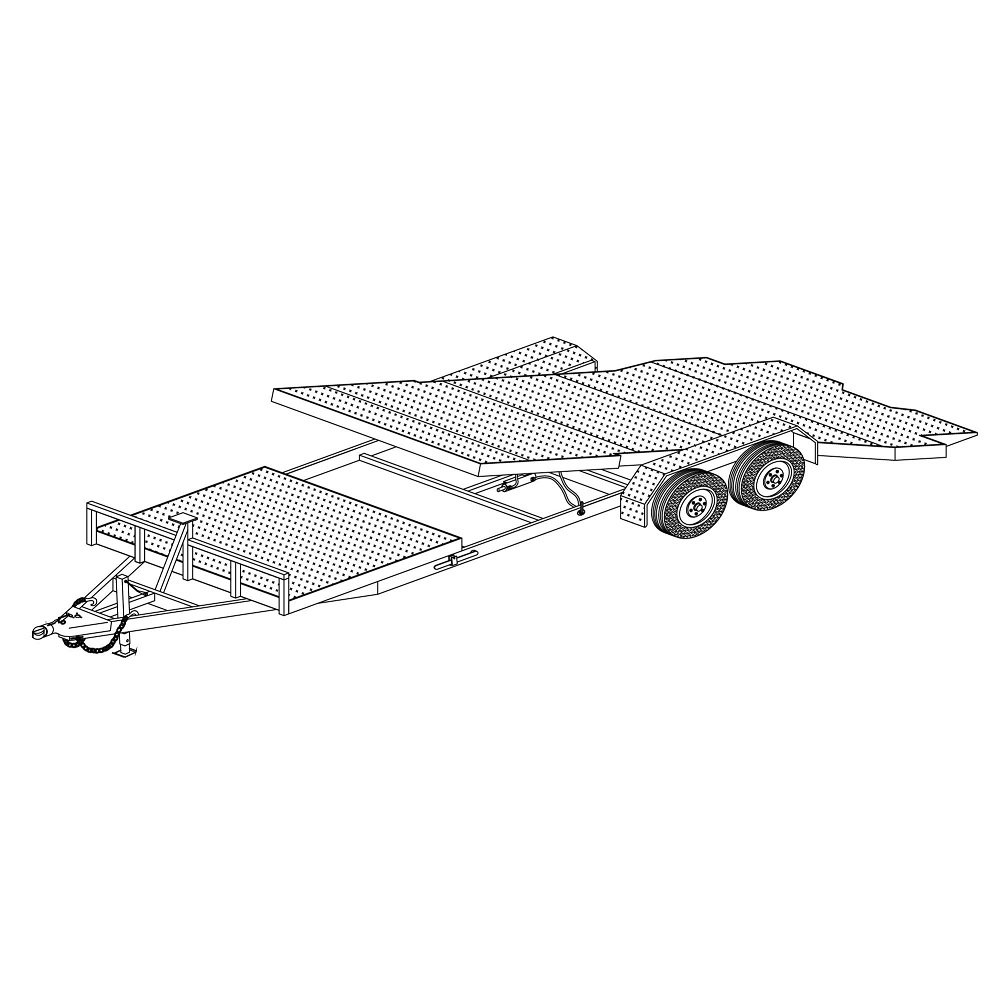
Budget Considerations
Setting a Budget
When purchasing a car trailer, it’s essential to establish a budget before you start shopping. Prices can vary significantly depending on the type, size, materials, and features of the trailer. While you may be tempted to opt for the most affordable option, it is crucial to consider the quality and safety features of the trailer.
Consider the long-term costs associated with maintenance and repairs, as well. Investing in a high-quality trailer may save money in the long run, reducing the need for repairs or replacements. Be sure to factor in costs for additional equipment, such as towing accessories, when setting your budget.
New vs. Used Trailers
Another significant budget consideration is whether to purchase a new or used trailer. New trailers come with the latest features and warranty coverage, providing peace of mind. However, they can be a significant investment.
Used trailers offer an affordable alternative, but thorough inspection is essential before purchasing. Verify that the used trailer is in good condition and meets your needs. Look for signs of wear and tear, and always request maintenance records. Making an informed choice between new and used trailers will ensure you get the best value for your money.
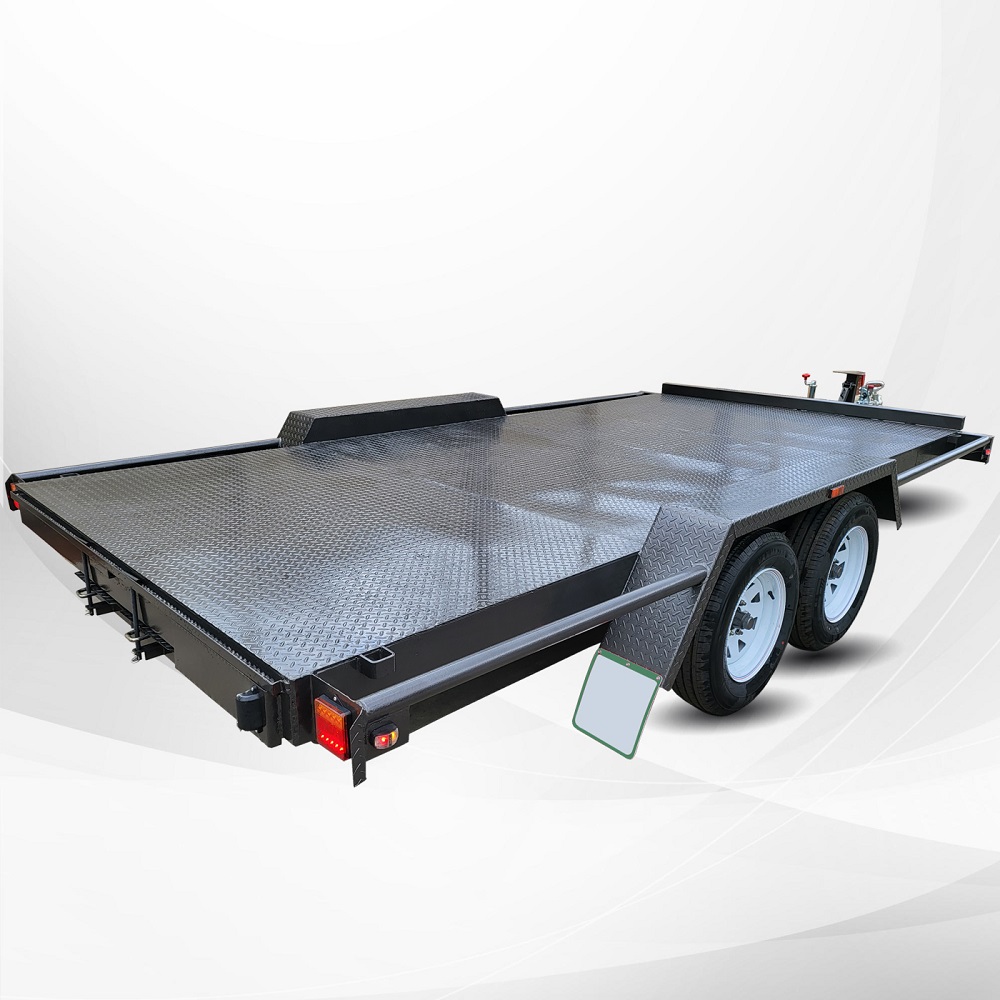
Benefits of Owning a Car Trailer
Convenience and Flexibility
Owning a car trailer provides unparalleled convenience for transporting vehicles. Whether you need to haul a classic car to a show, take an ATV to the trails, or move project vehicles, having a trailer makes the process seamless. This flexibility means you can haul multiple vehicles with ease, giving you the freedom to enjoy various outdoor activities.
Additionally, having a dedicated trailer means you can avoid costly shipping fees or relying on rental services. You have the ability to transport vehicles on your own schedule, ensuring efficiency and ease of access.
Enhanced Safety
Transporting vehicles using a trailer reduces risks associated with other transport methods. For instance, driving a vehicle on a busy highway poses inherent risks. With a trailer, vehicles remain secure and protected throughout transport.
Moreover, using a trailer allows you to keep the towing vehicle separate from the transported vehicle. This separation enhances safety, as it reduces the likelihood of accidents or damage during transportation. Investing in a car trailer provides not only convenience but also peace of mind for safely transporting your vehicles.
How to Maintain Your Car Trailer
Regular Inspections
Maintaining your car trailer is crucial for ensuring safety and longevity. Regular inspections should be performed to check for any signs of wear or damage. Inspect the tires for proper inflation and tread depth, as well as the brake system and lights.
Check for rust or corrosion, especially on steel trailers, and address any potential issues promptly. Make it a habit to clean your trailer after each use to prevent dirt and grime buildup. Keeping it in good condition will enhance its lifespan and reliability.
Storage Considerations
When the trailer is not in use, proper storage is essential. Store it in a dry, shaded area to protect it from the elements. If possible, use a cover to shield it from sunlight and rain. This will help maintain the finish and reduce wear on the components.
A well-maintained trailer not only protects your investment but ensures that it is ready for use whenever you need it. With proper care, your car trailer can serve you well for many years to come.
Choosing the Right Trailer for Your Needs
Selecting the right car trailer is an important decision that requires careful consideration and planning. Understanding the various types, materials, and features available will help you identify the best option for your needs. By defining your budget and considering factors such as safety, convenience, and maintenance, you can make an informed choice.
Car trailers provide a practical solution for transporting vehicles efficiently while ensuring their protection. Whether you are a casual user or a serious car enthusiast, having the right trailer will enhance your experience. Invest the time to research and choose wisely, as the right car trailer can make all the difference in your vehicle transport journey. Embrace the freedom that comes with owning a reliable car trailer, and enjoy the adventures that await as you hit the road!
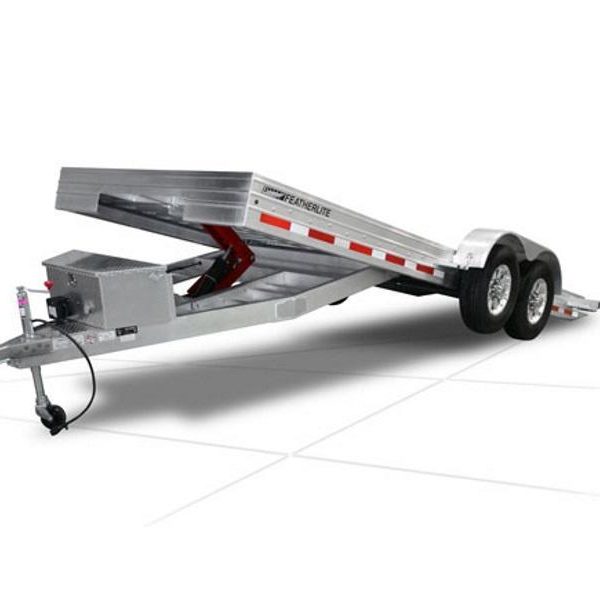
Leave a Reply